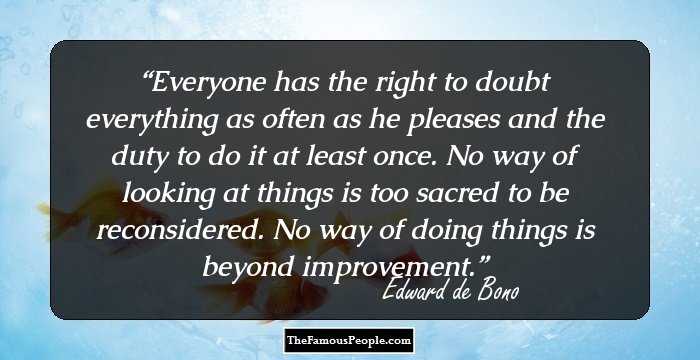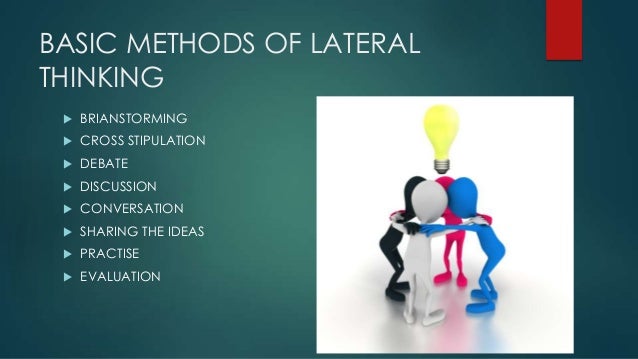Lateral Thinking What do businesses need today? A new way of thinking that opens a door they didn't even know existed. A way of thinking that seeks a solution to an intractable problem through unorthodox methods or elements that would normally be ignored by logical thinking. They need Lateral Thinking.
Divides thinking into two methods. He calls one 'vertical thinking,' which uses the processes of logic-the traditional, historical method.
Perhaps the foremost proponent of this approach is Edward De Bono, whose work on lateral. A partial list of books by de Bono includes: The Use of Lateral Thinking.
He calls the other 'lateral thinking,' which involves disrupting an apparent thinking sequence and arriving at the solution from another angle. Developing breakthrough ideas does not have to be the result of luck or a shotgun effort. De Bono's proven Lateral Thinking methods provide a deliberate, systematic process that will result in innovative thinking.

Creative thinking is not a talent; it's a skill that can be learned. It empowers people by adding strength to their natural abilities, which improves creativity and innovation, which leads to increased productivity and profit. Today, better quality and better service are essential, but they are not enough. Creativity and innovation are the only engines that will drive lasting, global success.
Edward De Bono Six Thinking Hats
Lateral Thinking Techniques Alternatives: How to use concepts as a breeding ground for new ideas. Sometimes we do not look beyond the obvious alternatives.
Focus: When and how to change the focus of your thinking. You will learn the discipline of defining your focus and sticking to it. Challenge: Breaking free from the limits of traditional thinking. With challenges, we act as though the present way of doing things is not necessarily the best. Random Entry: Using unconnected input to open up new lines of thinking. Provocation and Movement: Generating provocative statements and using them to build new ideas. Harvesting: Capturing your creative output.

At the end of a creative-thinking session, we normally only take note of the specific ideas that seem practical and have obvious value. Treatment of Ideas: How to develop ideas and shape them to fit an organization or situation. To find a Lateral Thinking training seminar or certification course near you, please refer to the or contact an in your region.